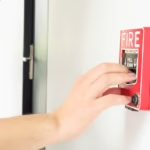In today’s world, where people increasingly spend a significant portion of their time indoors, the importance of indoor air quality cannot be overstated. While many factors contribute to the air quality inside homes and offices, HVAC systems play a pivotal role. These systems are vital not just for regulating temperature but also for ensuring the air we breathe indoors remains safe and clean. Well-maintained HVAC systems are crucial in maintaining healthy indoor air, making understanding their impact vital for both homeowners and facility managers.
HVAC systems, short for Heating, Ventilation, and Air Conditioning, are essential in moderating the internal environment of a building. They ensure comfortable living and working conditions by controlling temperature, humidity, and ventilation. However, one of the most overlooked aspects of these systems is their role in maintaining indoor air quality. Quality air inside a building is a significant component of overall human health, and the role of HVAC systems in maintaining it cannot be underestimated.
A well-maintained HVAC system filters the indoor air, removing contaminants such as dust, allergens, smoke, and pollutants. The air inside our homes and offices can be more polluted than the air outside due to the accumulation of these contaminants. This indoor pollution can exacerbate respiratory conditions, trigger allergies, and significantly affect overall well-being. Therefore, ensuring that an HVAC system is operating at its best is vital.
Regular maintenance of heating and cooling systems is at the core of effective air quality management. One of the most fundamental aspects of this maintenance is the regular change of filters. Filters are the first line of defense against airborne contaminants. They trap particles and prevent them from circulating through the air. However, as these filters work tirelessly to keep the air clean, they accumulate dust and debris, eventually becoming clogged. A clogged filter not only reduces the efficiency of the HVAC system, causing it to work harder and use more energy, but it also fails to adequately filter the air, thereby allowing contaminants to proliferate.
Experts recommend that filters be checked every month and replaced every three months, or more frequently if the system is heavily used or if there are pets or allergy sufferers in the household. When filters are changed regularly, it ensures the HVAC system functions optimally, and the air remains clean and healthy.
Besides filter changes, regular professional inspections are equally critical. While many homeowners may handle basic maintenance tasks themselves, having a professional inspect the HVAC system annually can identify and rectify potential issues before they become significant problems. During an inspection, a professional can check components such as coils, ducts, and fans for cleanliness and efficiency. They can also ensure that components are functioning as they should, make necessary adjustments, and clean parts that homeowners might not be able to assess on their own.
Professional maintenance helps in uncovering the less obvious yet crucial elements that contribute to maintaining a healthy indoor environment. For example, ductwork is another essential component that requires regular attention. Over time, ducts can accumulate dirt, mold, or even pests, all of which can contribute to poor air quality. Regular duct cleaning ensures that air flows smoothly and remains contaminant-free.
Incorporating humidity control strategies within an HVAC system can also significantly enhance indoor air quality. Proper humidity levels prevent the growth of mold and mildew, which not only compromise air quality but can also cause damage to buildings and negatively affect health. An efficiently running HVAC system can manage humidity levels, ensuring they remain within a healthy range.
The benefits of keeping HVAC systems well-maintained extend beyond air quality improvement. Efficient systems not only save energy and reduce utility bills but also prolong the lifespan of the equipment. They mitigate the need for costly repairs or replacements and ensure heating and cooling systems provide consistent comfort.
In summary, HVAC systems play an integral role in maintaining indoor air quality. They filter out contaminants, regulate humidity, and ensure good ventilation. However, their efficiency and effectiveness in improving air quality are directly linked to regular and proper maintenance. By diligently changing filters, scheduling professional inspections, and performing necessary maintenance tasks, homeowners and facility managers can ensure that their HVAC systems effectively contribute to healthier, cleaner indoor air. Embracing these practices not only promotes personal well-being but also enhances the comfort and safety of indoor environments.


